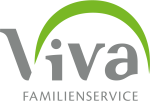Searching for a midwife: Our tips
 Even before you are pregnant, you are told from all directions how difficult it is to find a midwife. If your due date is during the summer holidays or around Christmas, finding a midwife is almost impossible. But what does a midwife do anyway? And where can you find a suitable midwife?
Even before you are pregnant, you are told from all directions how difficult it is to find a midwife. If your due date is during the summer holidays or around Christmas, finding a midwife is almost impossible. But what does a midwife do anyway? And where can you find a suitable midwife?
What does a midwife do?
A midwife is a health professional who works in obstetrics and cares for expectant mothers during pregnancy, birth and after birth. They are specialists (or men) around pregnancy, birth, postpartum and breastfeeding. The tasks of a midwife are very diverse:
- Pregnancy care: Midwives can carry out all prenatal care examinations from the beginning, including the recommended blood tests. Only the three scheduled ultrasound examinations and any additional prenatal diagnostics must be carried out by a gynaecologist.
- Birth preparation courses: Many midwives offer courses to prepare expectant parents for the birth. These courses provide information about the place of birth, birth process, relaxation techniques, breathing exercises and other relevant topics.
- Birth care: midwives provide birth care at home, in a birth centre or in hospital as a midwife on call or as a permanent midwife.
Note: Legally, a midwife must be present at every birth in Germany – but a doctor is not mandatory. - Postpartum care: After birth, the midwife supports the mother in recovery and breastfeeding. During the first 12 weeks, she undertakes home visits, monitors the health of the mother and the newborn, offers advice on caring for the baby and coping with possible challenges.
- Breastfeeding counselling: midwives provide support and advice for breastfeeding, including techniques, positions and solutions to possible breastfeeding problems./li>
Note: It is important to note that midwives are not only medical professionals, but also play an important role in empowerment and psychosocial support for pregnant women and new mothers. They often work closely with other health professionals to provide comprehensive care and may have different responsibilities depending on a country’s legal requirements and practices.
When should I start looking for a midwife?
It is important to know that there is a shortage of midwives in Germany. Therefore, it is never too early to start looking for a midwife! Meaning that you should start looking as soon as you have a positive pregnancy test.
Before the search begins, it makes sense to know which midwife services you would like to use: Classically, midwives are sought for postpartum care. But care during pregnancy is also possible. You should also think about the place of birth as early as possible. If you want 1:1 care for a home birth, a birth in a birth centre or a birth in a hospital, midwives with free capacities are needed. And midwives who offer birth support are even rarer than midwives who offer care for the postpartum period. This does not include permanent midwives in hospitals who work shifts and attend births.
You should not wait for the “first 12 critical weeks”. The midwife can also provide support during this time. In the case of a miscarriage, you are also entitled to midwife support, because a miscarriage is also a birth and therefore you are also entitled to midwife support.
Where do I find a midwife?
A convenient way is to search for midwives on the internet: The best place to start is the free online platform of the German Midwives Association Ammely. A list of midwives is available from the GKV Spitzenverband or at hebammenlisten.de (in German). A simple Google search (“midwife” + place of residence) can also lead to success, as can searches in corresponding Facebook groups.
Note: It is important that the requested midwife really covers the right district or region. Contacting a midwife who works further away in another area is rather hopeless. She will not be able to provide the support and, in case of doubt, will not answer at all.
However, there is also an analogue search: many cities and municipalities keep regional lists of midwives. Alternatively, you can get information from hospitals, birth centres or your gynaecologist, or get personal recommendations from other parents in your circle of friends and acquaintances.
Another point of contact is the health insurance fund: if the search is unsuccessful, a joint solution can be sought. In addition, it is important to make health insurance companies aware of the midwife shortage.
And what to do if you cannot find a midwife?
It can happen that you cannot find a midwife despite all your efforts. This often happens when the expected date is during the summer or winter holidays, or when the search for a midwife was started too late, so that all midwives are already fully booked for that period.
There are midwife practices that at least offer open midwife consultations for the postpartum period. There is no midwife who comes for a home visit but at best you can get an appointment at short notice to clarify questions and problems. You can also find midwives who offer online consultations via Ammely.co.uk. Call a Midwife is an online midwifery service that offers English consultations. It is digital support – by phone, video chat or chat. The costs are covered by your health insurance. On Kinderheldin.de experienced midwives are available every day via chat. Monday to Sunday from 7 am to 10 pm. Also, on public holidays. The first 7 days are free, but many health insurances cover the costs.
Note: It may be useful to start looking for a postpartum midwife again in the 20th or 30th week of pregnancy. Sometimes capacities become available again.













